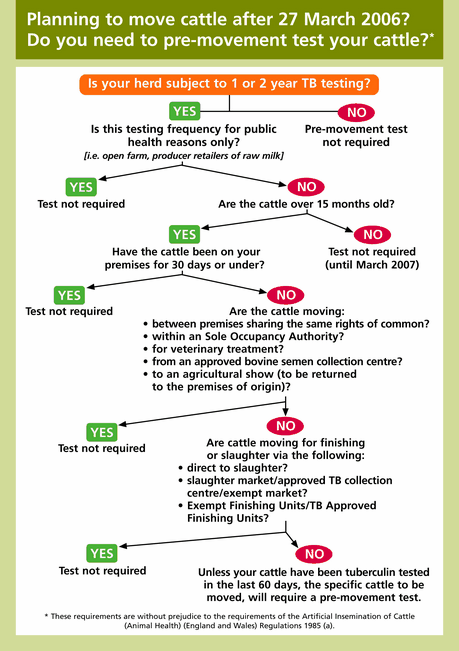DEFRA to push on with pre-movement bovine TB testing

DEFRA will press ahead with plans to introduce mandatory pre-movement bovine TB tests on Monday (27 March) despite continued requests from the industry for more time to prepare.
The requirement will affect all cattle over 15 months of age coming from herds under one- and two-year testing regimes.
A negative test result will be valid for 60 days.
Initially the requirement was postponed, from 20 February, when DEFRA agreed to a delay while an investigation was conducted to review the veterinary capacity in high risk areas.
Although the investigation is still going on, an interim report to DEFRA found no evidence to support any further delay.
The government’s chief veterinary officer, Debby Reynolds, said pre-movement testing was a necessary tool in the fight against TB.
“Bovine TB has reached severe levels in some parts of the country. Effective cattle controls are vital to combat this problem.”
Dr Reynolds added:
“Pre-movement testing will reduce the risk of this disease spreading within high-incidence areas and help keep clean areas clean.”
Following an industry meeting last Friday (17 March) with DEFRA to discuss the requirements and their implications for trade, Ben Messer-Bennetts, vice chairman of the Livestock Auctioneers’ Association, said he was happy with the negotiations.
“We had a shaky start, but ended up with some very constructive discussions.
We are still doing all we can to get at least a month’s delay, but, subject to the final drafting, we have got into a much better position.”
However, the restrictions on Exempt Finishing Units are less clear, but Mr Messer-Bennetts remained hopeful that DEFRA would implement a more practical view on the operation of exempt markets and finishing units, and would allow green markets and exempt markets to run alongside each other, subject to a physical or time separation.
The Welsh Assembly plans to introduce the same pre-movement testing policy during the spring.
Farmers in Scotland are already required to pre- and post-movement test all cattle brought from high-risk areas in England.

